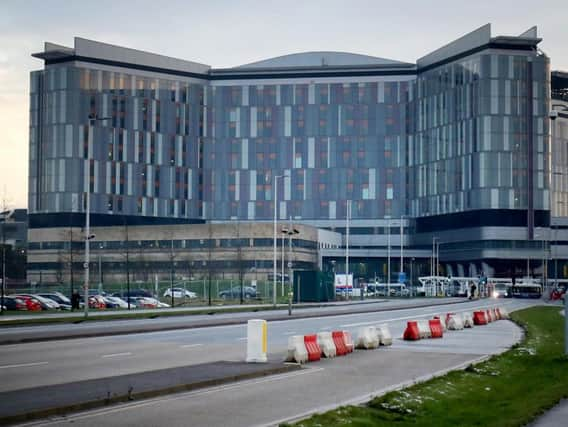Glasgow super hospital stops admitting patients to two wards after norovirus outbreak


The Queen Elizabeth University Hospital, in Glasgow, is not admitting new patients to two wards at the 'Langlands Unit', a statement from the NHS Greater Glasgow and Clyde Health Board, confirmed.
Norovirus, also known as a the 'winter vomiting bug', is the most common form of stomach bug in the UK, causing nausea, vomiting, and diarrhoea.
Advertisement
Hide AdAdvertisement
Hide AdThose suffering should not visit their friends and family in hospital, the statement added.
Dr Linda de Caestecker, NHSGGC’s Director of Public Health said: “Norovirus is highly contagious and is transmitted by contact with contaminated surfaces, an infected person, or consumption of contaminated food or water.
“The symptoms of norovirus are very distinctive – people often report a sudden onset of nausea, followed by projectile vomiting and watery diarrhoea.
“Most people with norovirus will make a full recovery in 1-2 days. It is important to keep hydrated – especially children and the elderly.
“Good hand hygiene using soap and water is important to stop the spread of the virus.”
